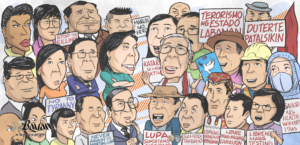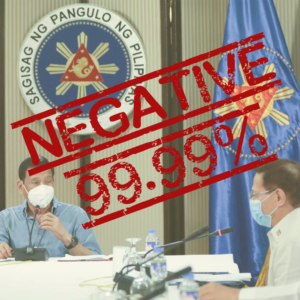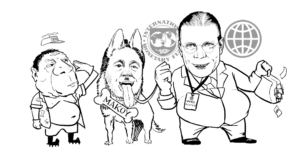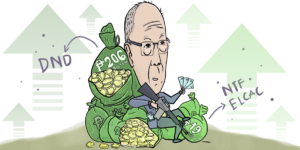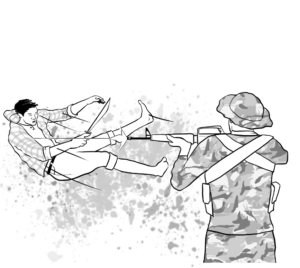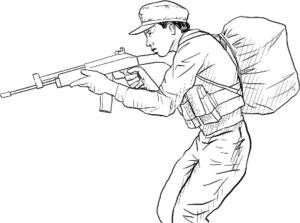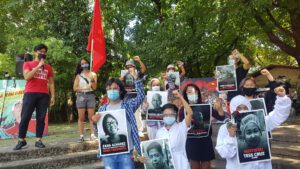Capitalist exploitation intensifies under pandemic

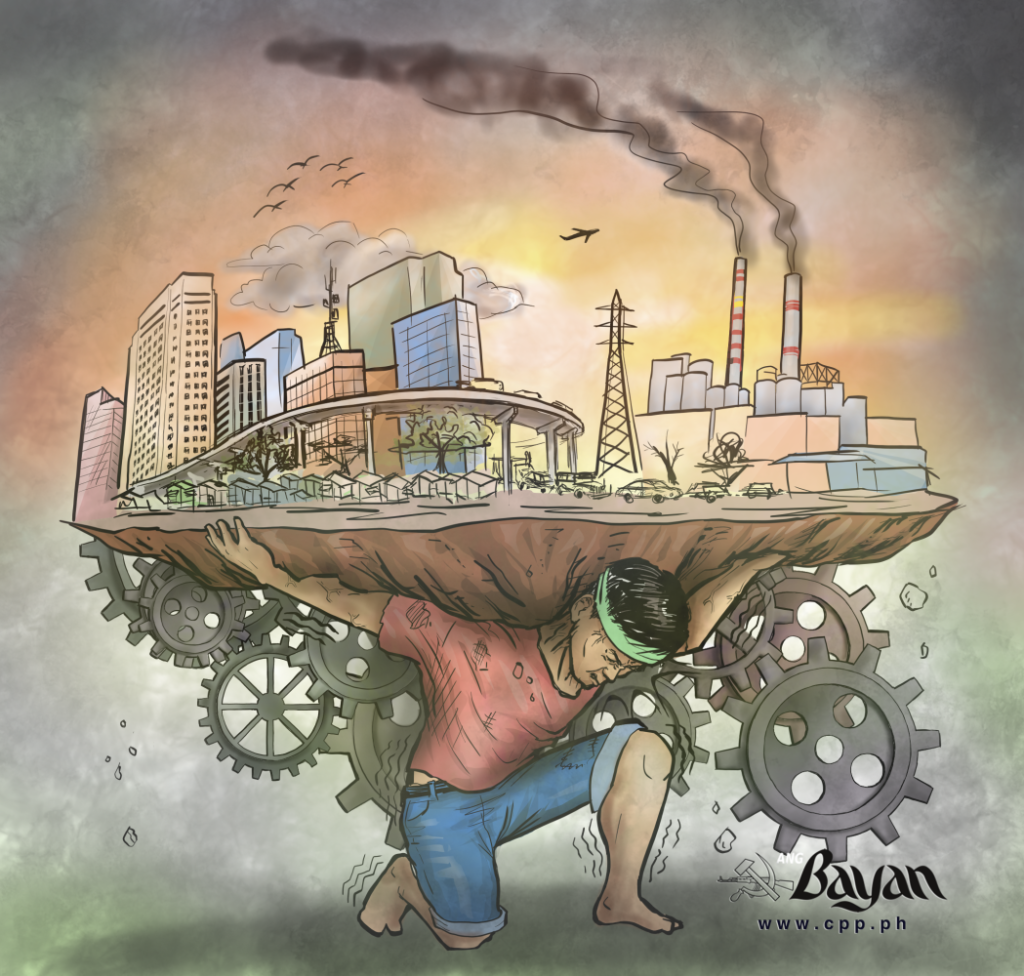
Exploitation of workers has intensified after returning to work amid the Covid-19 pandemic. When the Duterte regime allowed selected industries to reopen last May, it did so without requiring capitalists to test workers and ensure their health and safety in the workplace. Since then, it has only released two non-compulsory orders where companies were merely “encouraged” to respect basic workers rights and welfare. No sanctions were set for non-compliance.
Unsafe labor zones
In August, recorded infections rose sharply in Calabarzon’s (Region IV-A) export processing zones, where workers are highly concentrated in assembly lines. In Laguna Technopark alone, 30 out of 140 companies reported Covid-19 outbreaks at the end of July. These include large factories owned by Gardenia, Ftech, Alaska, Coca-cola, IMASEN, Technol Eight, Optodev, Interphil, Edward Keller, Toshiba and Nexperia. Regional health officials attributed the spread to private companies’ refusal to implement appropriate health measures. Officials said that common sources of infections included transport arrangements, dorms and dining areas but infections could also have spread from production lines. Contrary to government guidelines for social distancing, most factories are already operating at 80% to 100% capacity since restrictions were lifted according to workers’ safety watchdogs.
Majority of Filipino workers are non-unionized and contractuals in these zones. Companies tend to disregard their health and welfare in the rush to earn greater profits.
There has been cases where a company refused to shut down operations to disinfect the premises even after two workers tested positive. When the infection spread, the company sent infected workers home without pay. Quarantine facilities are lacking. Oftentimes, workers had no choice but to go back to their rented, crowded boarding houses and homes, exposing their families and other workers to infection. There was no contact tracing, no follow-up health checks from the company. The local government only sent the barangay midwife to monitor their temperature.
No mass testing has been conducted. Workers who experienced symptoms continued to mingle in highly dense assembly lines and common areas. Companies who tested their workers did did not extend testing to their families.
In Metro Manila, there have been call center companies which willfully withheld data on infections to avoid being shutdown. Infected workers were only sent home and made to fend for themselves. Agents continue to work in compact air-conditioned offices even if they sense that they were already infected.
Worse, many companies have used the pandemic to terminate workers or shortchange contractuals. In June, around 300 workers from Jollibee food commissary Zenith Foods Corporation were arbitrarily fired and promptly replaced. In Southern Tagalog, arbitrary layoffs have also been reported in the factories and warehouses of Lazada, Nippon Paint, SKMTI, TS Tech, Logistics, Conception and Unimagina.
Inutile government
The Department of Labor and Employment (DOLE) reported last September 9 that it has inspected only 40,943 establishments out of more than a million registered businesses. Almost a fourth (9,943) of these companies did not comply to requisite health measures such as wearing of face masks and shields, providing sanitation facilities, and regular temperature and health checks.
Again and again, the Duterte regime refused to heed the demand for government to undertake mass testing among workers and the people. It only urged private to test workers before employing them. Most workers had to pay for the tests themselves, which costs from ₱4,000 to ₱8,000 per test. PhilHealth only covers ₱900 per test.
The regime also refused to require private companies to provide adequate isolation facilities. Instead, it ordered local government units to convert classrooms into temporary isolation units and pass monitoring of the patients on to local barangays.
There have been no testing in workers communities. The regime also did not require private companies to give their workers a “quarantine pay” for the requisite 14 days. Instead of compelling these companies, the regime toothlessly “suggested” that workers be given paid and extended sick leave and supplemental allowance. The “no work, no pay” policy is ruthlessly enforced even when they got sickly clearly from the factory. They are often not given hazard pay.
The regime banned public transportation, yet did not provide an alternative. It again shifted the responsibility to private companies, which in turn, hired other private companies and let the workers pay for the expensive service. Workers in Laguna complained of shelling out as much as ₱60/day, from their meager ₱373 daily wage, for shuttle services.
Worse, the regime urged the slashing of wages through a department order that would allow companies to “negotiate” wage cuts. Many of those who have work from home arrangements have already accepted cuts up to 50% of their basic pay.

